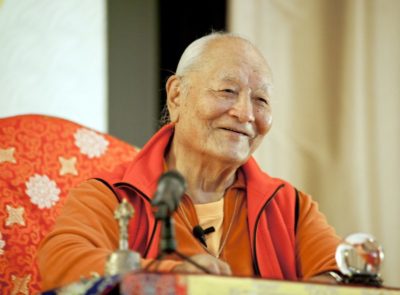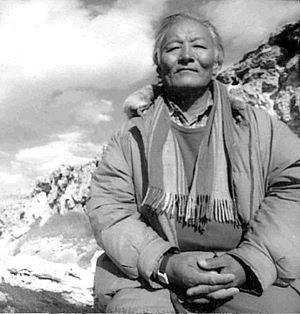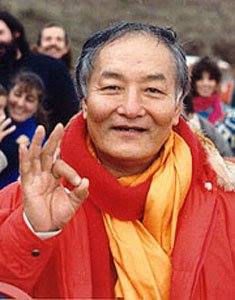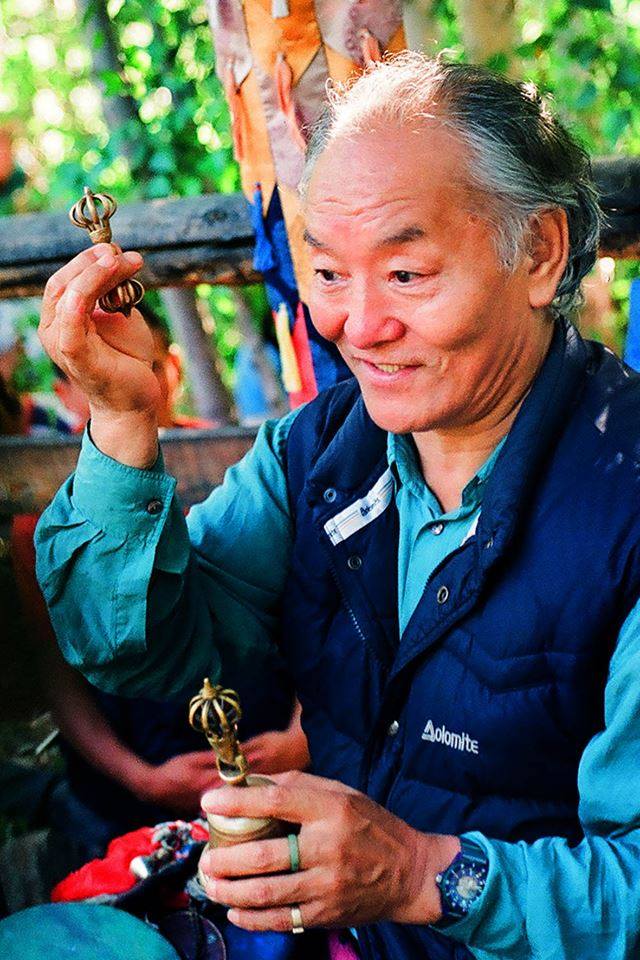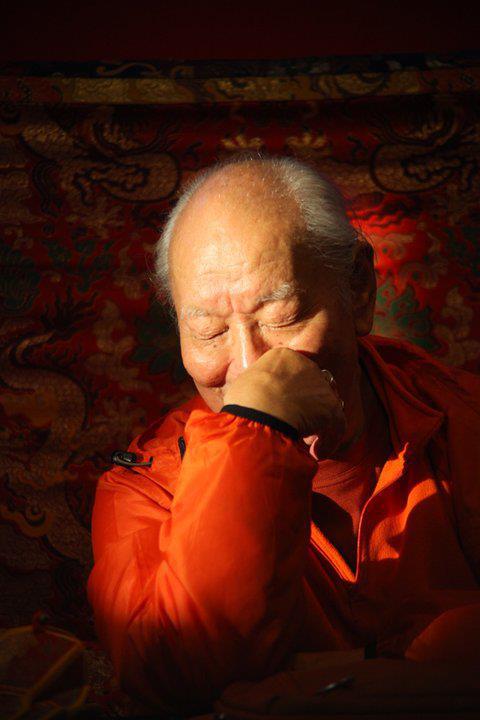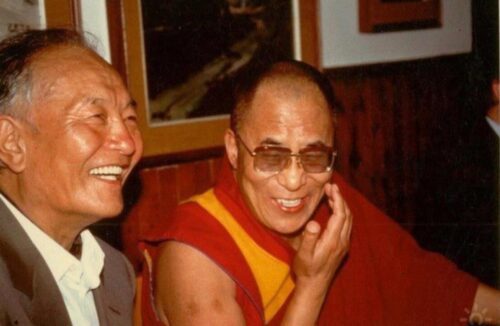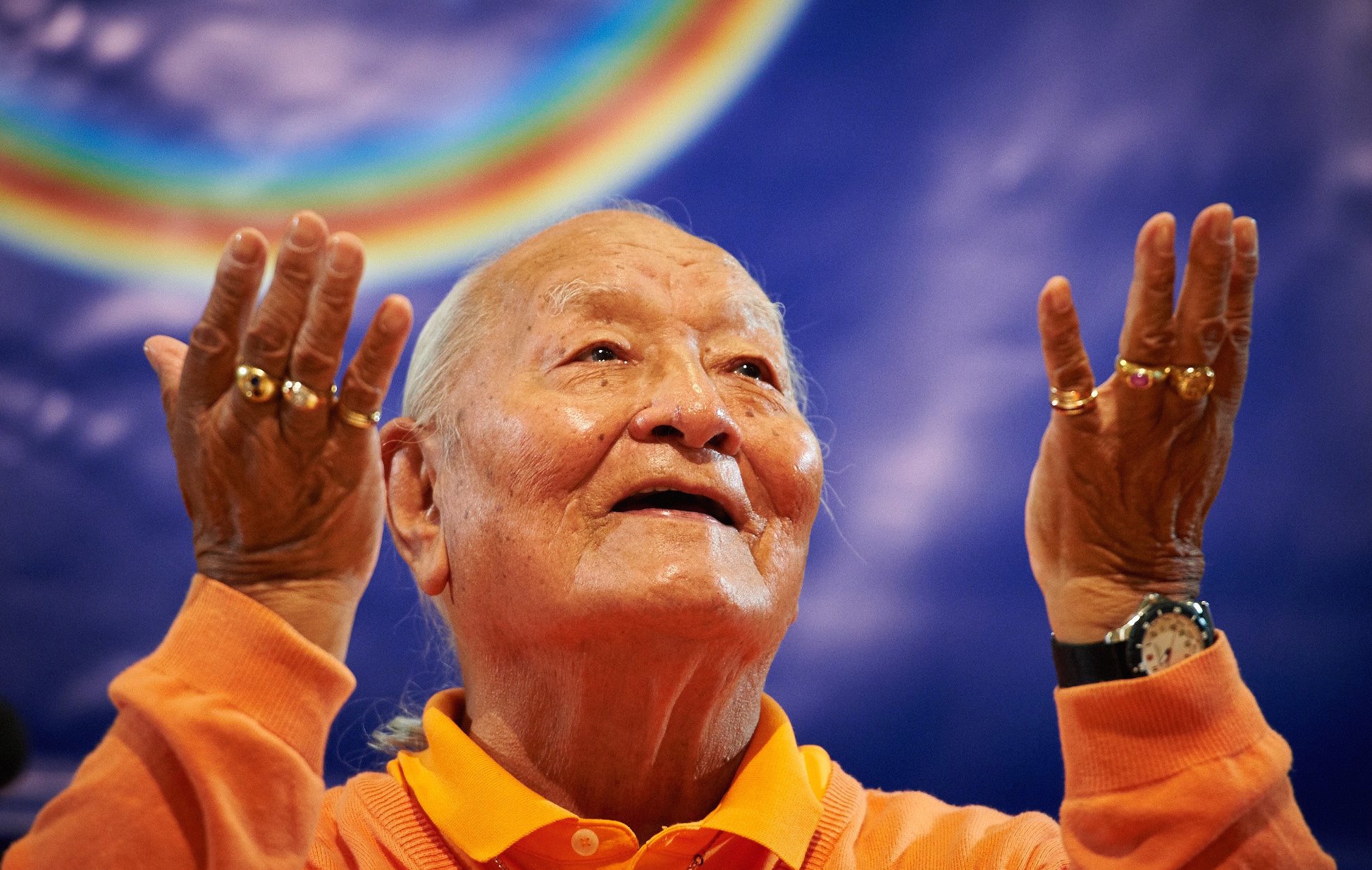
Namkhai Norbu Rinpoche gave transmission of all the three series of Dzogchen with practical instructions of their specific methods of practice
Namkhai Norbu was born in a small village called Geuk (dge ‘ug) near Changra (lcang ra) in Derge, Kham, in 1938, on the thirteenth day of the tenth lunar month of the earth-tiger year. Later in life he chose to mark his birthday on December 8. His father, Tsewang Namgyel (tshe dbang rnam rgyal, 1889–1962) of the Trokhe (gro khe) clan from Kamtok (skam thog), was a government official of the Derge kingdom; his mother, Yeshe Chodron (ye shes chos sgron, 1904–1965), belonged to the Ngonatsang (sngo rna tshang), one of the most ancient families in Derge. She was the niece of Jamyang Chokyi Wangpo (‘jam dbyangs chos kyi dbang po, 1893–1908) and the sister of his reincarnation, Khyentse Chokyi Wangchuk (mkhyen brtse’i chos kyi dbang phyug, 1909–1960), the first and second generation reincarnations of Jamyang Khyentse Wangpo (‘jam dbyangs mkhyen brtse’i dbang po, 1820–1892), respectively.
He had three elder sisters: Jamyang Chodron (‘jam dbyangs chos sgron, 1921–1985), known as Jamcho; Sonam Pelmo (bsod nams dpal mo, 1924–1988), known as Aso; Tashi Yangdzom (bkra shis dbyangs ‘dzoms, 1929–2006), known as Trayang; and one younger sister, Tsering Yangdzom (tshe ring dbyangs ‘dzoms, b. 1946). His two younger brothers were Pema Gungtsen (padma gung btsan, 1940–1960) and Jamyang Puntsok (‘jam dbyangs phun tshogs, 1943–1948). Continue reading

